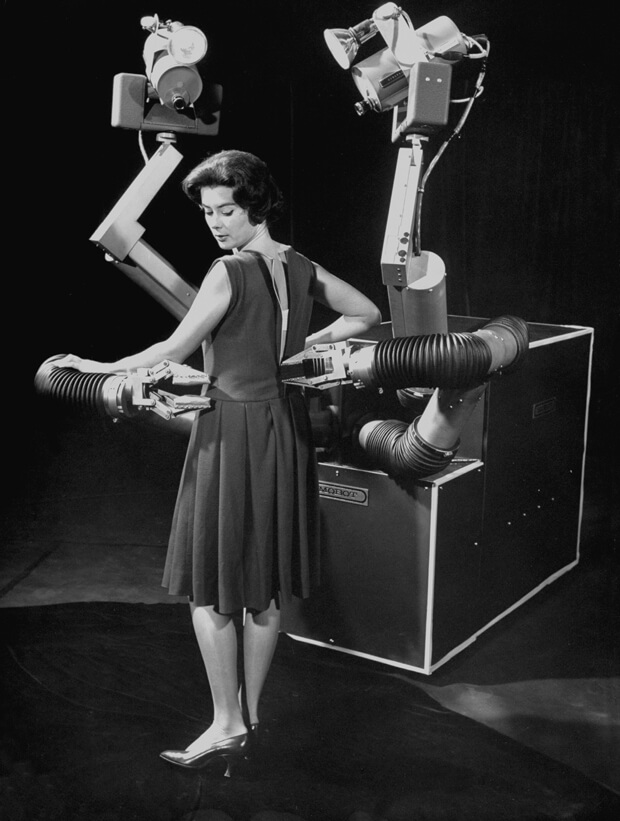4K gaming: what can PC learn from PlayStation Pro? Checkerboarding, upscaling, temporal anti-aliasing, dynamic resolution. Let's give credit where it's due: at its best, PlayStation 4 Pro's utilisation of these techniques produces some impressive results for 4K displays - no mean feat considering that the Pro's GPU is relatively underpowered compared to today's mainstream PC graphics hardware. And this led us to wonder - what if those techniques were rolled out in the PC space? Could the cost of admission to the world of 4K gaming drop dramatically if the techniques championed by Sony worked just as effectively for PC gamers? EuroGamer
Report: More than half of streaming users are sharing their passwords There's no denying that the television landscape is changing the days, with cable TV putting up dismal numbers (their worst ever, actually). But as more people migrate to streaming video, the scenery there is changing as well. Nearly 3 out of every 4 (72% exactly) Americans who have cable also have access to at least one streaming service and 8% of cable subscribers plan to eliminate their service in the next year. But that doesn't necessarily mean they're paying for their streaming service. Streaming Observer
A year of Google & Apple maps Shortly after I published my Cartography Comparison last June, I noticed Google updating some of the areas we had focused on: Coincidence or not, it was interesting. And it made me wonder what else would change, if we kept watching. Would Google keep adding detail? And would Apple, like Google, also start making changes? So I wrote a script that takes monthly screenshots of Google and Apple Maps.1 And thirteen months later, we now have a year's worth of images... Justin O'Beirne
How Facebook's tentacles reach further than you think Facebook's collection of data makes it one of the most influential organisations in the world. Share Lab wanted to look "under the bonnet" at the tech giant's algorithms and connections to better understand the social structure and power relations within the company. A couple of years ago, Vladan Joler and his brainy friends in Belgrade began investigating the inner workings of one of the world's most powerful corporations. BBC
Google's AlphaGo retires on top after humbling world No. 1 The Google-owned computer algorithm AlphaGo is retiring from playing humans in the ancient Chinese game of Go after roundly defeating the world's top player this week, its developer said Saturday. AlphaGo defeated brash 19-year-old world number one Ke Jie of China on Saturday to sweep a three-game series that was closely watched as a measure of how far artificial intelligence (AI) has come. Phys.org

How to build your own VPN if you're (rightfully) wary of commercial options In the wake of this spring's Senate ruling nixing FCC privacy regulations imposed on ISPs, you may be (even more) worried about how your data is used, misused, and abused. There have been a lot of opinions on this topic since, ranging from "the sky is falling" to "move along, citizen, nothing to see here." Ars Technica
The 1961 Mobot Mark II had all the moves In the late 1950s, Sandia Laboratory was looking for a way to handle radioactive materials without putting humans in danger. The answer was the Mobot---short for either "remote robot" or "mobile robot"---a remotely operated system designed by Hughes Aircraft Co. in 1959 that offered a unique and effective combination of strength and dexterity. IEEE Spectrum

Faster, more nimble drones on the horizon There's a limit to how fast autonomous vehicles can fly while safely avoiding obstacles. That's because the cameras used on today's drones can only process images so fast, frame by individual frame. Beyond roughly 30 miles per hour, a drone is likely to crash simply because its cameras can't keep up. MIT
How Anker is beating Apple and Samsung at their own accessory game Steven Yang quit his job at Google in the summer of 2011 to build the products he felt the world needed: a line of reasonably priced accessories that would be better than the ones you could buy from Apple and other big-name brands. These accessories --- batteries, cables, chargers --- would solve our most persistent gadget problem by letting us stay powered on at all times. The Verge
Apple is working on a dedicated chip to power AI on devices Apple Inc. got an early start in artificial intelligence software with the 2011 introduction of Siri, a tool that lets users operate their smartphones with voice commands. Now the electronics giant is bringing artificial intelligence to chips. Apple is working on a processor devoted specifically to AI-related tasks, according to a person familiar with the matter. Bloomberg
The history of RPGs Computers and RPGs have always gone hand-in-hand. Even when the best adventurers could hope for visually was a few letters and numbers on a screen, what better way could there be to handle stats, die-rolls and complex calculations? Soon enough, though, computer RPGs were capable of doing much more. PC Gamer

Nanogenerators could charge your smartphone Researchers at the Georgia Institute of Technology have been exploring the applications and commercial potential for triboelectric nanogenerators (TENGs) since 2012. These so-called TENGs essentially harvest static electricity from friction. IEEE Spectrum
